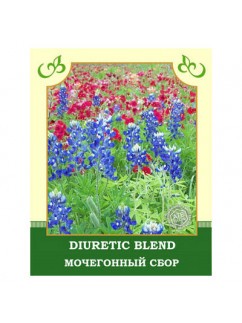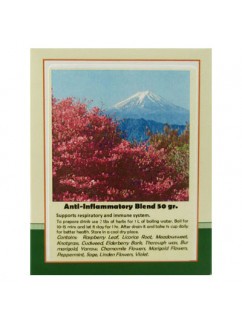Dry Herbs & Berries
- Everlasting flower is an ancient herb, which has a long history of use. Traditionally this herb has been used for kidney and liver illnesses, and for gastrointestinal tract disorders. Everlasting flowers contain volatile oil, vitamins, glycosides, alcohol, tannins, fatty acids, minerals and trace elements. The properties of everlasting flower are anti-inflammatory, antibacterial, spasmolytic, cholagogic, diuretic and improving metabolism. The herb helps reduce cholesterol in blood.$7.99
- For centuries, Chaga has been revered for its life enhancing properties. According to thousands of years of testing in Traditional Chinese Medicine, medicinal mushrooms including Chaga, can preserve youth and increase longevity, improve health, and boost life energy. Chaga contains zinc, copper, magnesium, calcium, potassium, aluminum, iron, silicon, manganese and other substances. The properties of Chaga are spasmolytic, diuretic, analgetic, antimicrobial, restorative, laxative and antitumoral. Chaga mushroom is also well known for its huge load of immune stimulating phytochemicals. The Chaga fungus has some of the highest amounts of anti-oxidants of any substance consumed by man.$6.99
Internally, it is taken as a warming, anti-inflammatory, toning, antibacterial, and expectorant remedy. It lowers cholesterol levels in the blood, improves appetite, and accelerates metabolism. It promotes the expectoration of mucus during colds.
Externally, it is used as hot mustard foot baths — a popular and safe method of home treatment for colds.
Contraindications: Before using mustard for therapeutic purposes, it is necessary to consult with a doctor.
$5.99Composition: knotweed, calendula, dill (seeds), Eleutherococcus, peppermint.
Indications: Used for diseases of the kidneys and urinary system.
$6.99Internal use:
Take internally as an appetite stimulant and digestive aid, as well as for deworming, as a cholagogue, and as a mild laxative for liver diseases, spleen conditions, gastritis, chronic constipation, hemorrhoids, and inflammatory conditions of the lymph nodes, furunculosis, medicamentous dermatitis, and acne. It improves overall well-being, normalizes metabolism, reduces cholesterol levels in the blood, and improves blood composition in anemia.
Method of application and dosage: Pour 1 tablespoon of roots with 200 ml of boiling water, boil for 15 minutes in a water bath, infuse for 45 minutes at room temperature, strain. Bring the ready infusion to the initial volume and take 1/3 cup 3-4 times a day 15 minutes before meals.
External use:
Externally, it is applied as rubs and washes for furunculosis, acne, dermatitis, and as a whitening agent for washing the face to get rid of freckles. Pour 2 tablespoons of raw material with 300 ml of boiling water, simmer for 15 minutes over low heat, infuse until cooled.
Contraindications: Individual intolerance, acute conditions with biliary tract obstruction, increased secretion of hydrochloric acid (peptic ulcer and gastritis).
$6.99- The plant is also called Bear Berry. Chinese have been using Bear Berry Leaves since 13th century as a diuretic, to reduce kidney and urinary problems. Bear berry leaves are still used medicinally in Poland and other countries. Native Americans also used Bear berry tea for inflammation of the urinary tract, urethritis, kidney stones, and cystitis. The berries were also made into a tea that was used to ward off obesity. Bearberry is a very useful plant. All parts of it can be used in some way. The fruit can be eaten and cooked with other foods. The roots can be made into a tea that can treat a constant cough or slow down menstrual bleeding. A tea from the stem is used to prevent miscarriage and to speed up a womens recovery after childbirth. A tea made from the leaves can be drunk to treat kidney or bladder problems. Bear Berry Leaves have diuretic, anti-inflammatory and anti-microbial qualities. Use as a diuretic, and anti-microbial agent in cases of inflammatory diseases of the urinary tracts.$5.99
Internally: Taken for indigestion, insomnia, and spasms, angina, headaches, hypertension, vomiting, belching, hemorrhoids, and to stimulate appetite, for colic; for stimulating milk secretion in breastfeeding women. An infusion of dill seeds is used for liver and biliary tract diseases.
Method of application and doses: Infusion: 1 tablespoon is poured with 1 glass of boiling water, infused for 15 minutes, strained. Take 1 tablespoon up to 6 times a day 15 minutes before meals in a cold form.
Externally: Used in the form of compresses for eye diseases, for pustular skin lesions.
Contraindications: Individual intolerance.
$5.99Internally: Taken as a remedy for cough in diseases of the upper respiratory tract, as an expectorant and disinfectant in chronic bronchitis, chronic tonsillitis, and acute respiratory diseases. Also possess diuretic and cholagogue properties.
Method of application and doses: 1 tablespoon of kidney pours 200 ml of boiling water, boils in a water bath for 30 minutes, infuses at room temperature for 10 minutes, strains, the resulting infusion is brought to the original volume with boiled water and taken in 1/2-1/3 glass 2-3 times a day after meals.
Externally: Applied in the form of baths in the treatment of the nervous and cardiovascular systems, rickets in children; as inhalations for diseases of the upper respiratory tract. For baths: 500 g per 5 liters of water boil for 30 minutes, strain, add the obtained decoction to the main bath.
Contraindications: Individual intolerance, in nephritis and nephrosis.
$7.99
Description. People have been using birch for therapy and healing since ancient times. Almost all parts of this tree have special properties valuable for health. Birch leaves act as anesthetic, anti-inflammatory, wound healing and antimicrobial. They help cope with pathogenic bacteria and fungi; improve blood circulation, and reduce thrombus from the smallest blood vessels.Birch leaves contain many of bioactive substances acids, flavonoids, rutin, tannins, vitamins C, E, PP and carotin. They help lower blood pressure. Use. Nowadays birch leaves preparations are used in cases of avitaminosis, edema, urinary bladder inflammation, atherosclerosis, kidney disorders and as cholagogic and expectorant. Leaves decoction is tonic and restorative and is useful for wet eczemas and climacteric neurosis. Birch leaves are used for flushing kidney and bladder stones, and for urinary infections. Preparations made of them are good for bronchitis, gastritis, stomach ulcers, edema and gout. Birch leaves are also valuable for various skin problems and help in coping with pathogenic microbes, fungi and inflammations. Finally they are known also to stimulate hair growth.
Attention! Before using any herbal products, make sure that you have full knowledge of how the herb works and any adverse reaction it may cause.$6.99Composition: raspberry leaves, licorice, knotweed, yarrow, peppermint, common madder, sage, lobaznik, marsh cinquefoil, elderberry fruits, tansy, lime blossom, chamomile, calendula, violet.
Infusions and decoctions have anti-inflammatory, antipyretic, and analgesic effects without causing side effects.
$6.99
If you like to use a lot of dry herbs and berries to create teas, wellness pads and an assortment of other items for well-being, our dry herbs and berries can provide you with a quick way to do it on your own. Each packet contains the herbs or berries of your choice that were freshly grown, chopped up and dried to perfection. Every herb and berries packet is 100% natural, with no artificial preservatives or added fillers. You're able to create a tasty blend with all that is provided from our large selection.





















